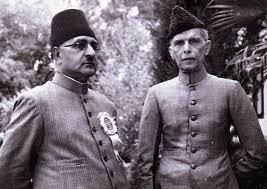Architects of Stability: Quaid-e-Azam’s Vision and Liaquat Ali Khan’s Leadership in Shaping Pakistan
INTRODUCTION

The birth of Pakistan in 1947 stands as a monumental and unprecedented event in South Asian history. This remarkable achievement is undeniably attributed to the unwavering dedication and exceptional leadership of two key figures: Quaid-e-Azam Muhammad Ali Jinnah and Liaquat Ali Khan.
This article will delve into their extraordinary roles and unique contributions to the stability and foundation of Pakistan, including the deeply emotional moments of Quaid-e-Azam’s death and burial. We will also explore Liaquat Ali Khan’s extraordinary significance in shaping Pakistan’s destiny. Additionally, we will journey through the creation of a ministry for tribal areas, a bold move that wielded tremendous power in integrating these historically marginalized regions into the national fabric.
I. Quaid-e-Azam’s Legacy:
- Quaid-e-Azam Muhammad Ali Jinnah departed from this world on September 11, 1948, leaving behind a nation-in-the-making.
- He found his eternal rest in Karachi, Pakistan, at Mazar-e-Quaid, an awe-inspiring mausoleum built to honor his extraordinary legacy.
- Quaid-e-Azam, a titan among leaders, was the driving force behind the creation of Pakistan, commanding the All-India Muslim League and negotiating relentlessly for a separate Muslim state.
- His vision for Pakistan transcended the ordinary; it was a vision that championed religious freedom, democratic principles, and equality for all its citizens.
II. Liaquat Ali Khan’s Contribution:
- Liaquat Ali Khan, the torchbearer of Pakistan’s early years, served as the nation’s first Prime Minister from 1947 to 1951.
- He was not just an associate but a trusted confidant of Quaid-e-Azam Jinnah, playing a pivotal role in consolidating the nascent nation.
- Liaquat Ali Khan, with his charismatic diplomacy, carried Pakistan’s aspirations onto the international stage, forging relationships with other nations and fiercely representing Pakistan’s interests.
- With unparalleled commitment, he initiated economic reforms, a testament to his unshakable belief in achieving economic stability and self-reliance.
- Faced with challenges of land ownership and agricultural production, Liaquat Ali Khan’s government took bold steps by introducing land reforms.
- An emotionally charged moment struck the nation when he was tragically assassinated in 1951. His dedication to the nation’s stability and development is etched in the annals of history with profound respect and deep emotion.
III. Ministry for Tribal Areas:
- In 1955, the Government of Pakistan took a powerful step by establishing the Ministry of States and Frontier Regions (SAFRON), endowing it with the authority to oversee the tribal areas and orchestrate their integration into the Pakistani state.
- SAFRON, with a blend of common sense and ambition, embarked on a mission to modernize the tribal areas, extending the rule of law and providing long-awaited development opportunities for the tribal populations.
- The ministry, armed with determination, introduced administrative reforms that breathed fresh life into these isolated regions, extending the warm embrace of the national legal framework.
- The creation of SAFRON was a powerful and irreplaceable step in the process of knitting the tribal areas into the rich tapestry of Pakistan, serving as a beacon of hope for promoting stability and progress in these historically marginalized regions.
CONCLUSION:
In conclusion, the indomitable spirit of Quaid-e-Azam Muhammad Ali Jinnah and the unwavering dedication of Liaquat Ali Khan played a powerfully pivotal role in the stability and foundation of Pakistan. Their dedication to the principles of democracy, equality, and the rule of law laid the unshakeable groundwork for the nation’s development. Additionally, the creation of the Ministry of SAFRON, a masterstroke of statesmanship, served as a lighthouse guiding the tribal areas toward integration and fostering their long-awaited progress and stability. These moments in history, both common and extraordinary, serve as the heartbeats of Pakistan’s journey towards a brighter future.
1 comment